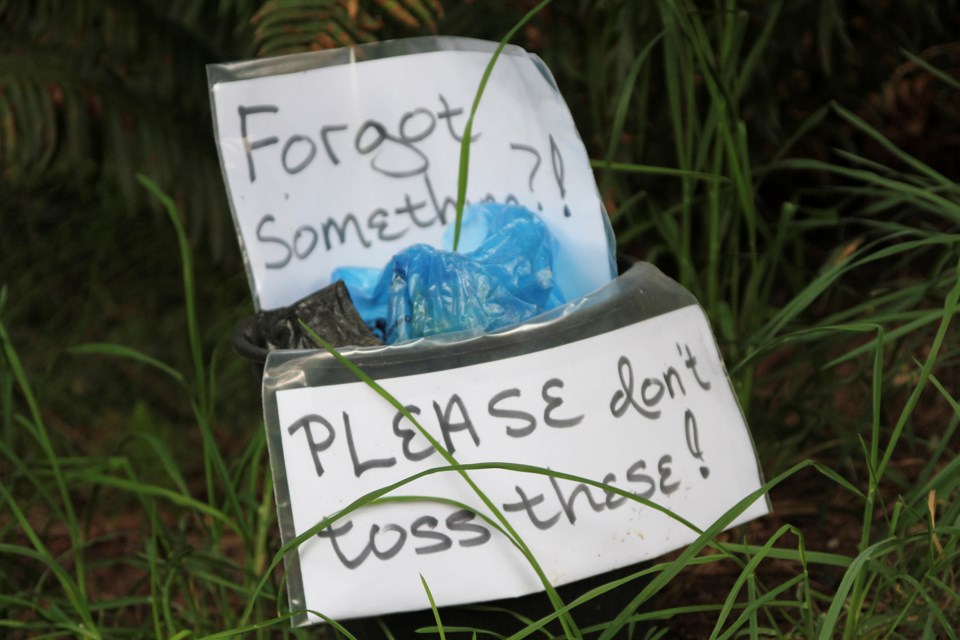Bowen Island is a dog-lovers paradise. Dog owners on Bowen seem to love their pets so much that they forget, all too often, to clean up after them. Below are a few interesting facts from Metro Vancouver Parks which may inspire a little more vigilance:
MYTH BUSTER
Dog poop is not fertilizer. It’s full of bacteria, nitrogen and salts which don’t dissolve and can be harmful to plants, aquatic life and people.
Since dogs are meat eaters, their feces can carry pathogens including coliform bacteria, salmonella and giardia which can contaminate soil and water (and make people sick). Some parasites can linger in soil for years. This can put young children at risk if they inadvertently eat contaminated dirt or grass. Persons confined to hand-activated wheelchairs and active sports participants may also be at risk.
WHAT ABOUT HORSE POOP?
Horses are herbivores (eat grasses, plants). Their manure (in small amounts) is organic and biodegradable, and tends to dissolve quickly. Horse manure does not contain the contaminates, bacteria and salts that dog poop does.
IT ADDS UP!
In 2010, 10 million visits were made to Metro Vancouver Regional Parks. It’s estimated that 24% (2.4 million) of these visits included a dog. A medium sized dog (e.g. cocker spaniel) discharges 0.34 kg of feces and about 720 ml of urine each day. Using these averages, that means about 961 half-ton truckloads of feces and 513 oil drums of urine are deposited in Metro Vancouver parks each year.
... AND IT GETS AROUND
Dogs typically defecate along the first 100 to 150 metres of a trail. Two or three days’ worth of poop from about 100 dogs can contribute enough bacteria to temporarily close a bay to swimming and shellfishing.



